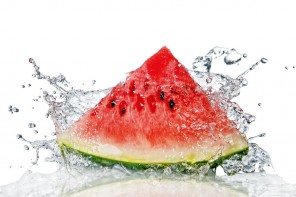Written by: Giulia Simolo
Good habits are not only about improving yourself, but also doing your bit for the planet. But are your children’s habits green? Or could they do with some eco-friendliness? Here are some good green habits to start them on the right track.
Pop it in the recycling bin
Ensure that you have clearly demarcated bins for regular trash and items that can be recycled. In this way your children will get into the habit of throwing things away correctly because you make it easier for them. It could also help to keep a written reminder above the recycling bin so that they know what can be recycled versus what can’t. For example, an empty pizza box can be tossed into the recycling bin, but only if it isn’t splattered with sauce because the oils in the pizza could contaminate the cardboard and make it impossible to process it into clean paper. Remind your kids to throw out what is not ruined by foodstuff otherwise they will end up throwing anything and everything into the recycle bin.
Cleaning up their rooms
This is by far one of the toughest things to get your kids to do! But not only is it hygienic; it also prevents waste and clutter, thus contributing to a greener lifestyle. It’s therefore helpful to find ways to get them to clean up and keep things in order. But how? Here are some pointers:
- Have regular clutter swops. Often if children feel they can get something out of doing their chores, then they are more prone to clean up. But it’s up to you to make them see that cleaning can be fun – and maybe result in them gaining new toys/clothes. One way in which you can do this is to suggest a family clutter swop: everyone looks through their personal belongings for things they don’t want anymore and then trades their stuff. This is a great way to recycle items instead of throwing them out, as one person’s trash can be another one’s treasure.
- Reward them for eco-friendly creativity. Another way to get your children to prevent waste and clutter is to reward them. For example, for every item that they manage to use in a creative way (whether that means donating it to a hospice or turning it into something useful), they could receive a reward, such as a bit of extra money on their allowance that they can spend on anything that tickles their fancy.
Energy saving
With this being the techno age, chances are your kids use the computer, watch TV or play video games on a daily basis. That’s a lot of energy being used – and wasted: just think of how light switches or appliances get left on even when they’re not being used. In order to tackle this, teach your kids about energy utilisation. Tell them that energy supplies are under pressure and it’s important to prevent wastage. For instance, remind them to switch off the lights when they leave the room, and even leave them post-it reminders until they get used to sticking to the habit. Have a ‘no technology day´ once a week where you spend quality time together as a family and ban the use of any cell phones, gadgets or appliances. This will not only mean that you save energy and enjoy each other’s company, but you also make your children appreciate energy that fuels their various activities.
Take their activities outside
Your children need to spend time in nature in order to understand why eco-friendly initiatives are so important. In other words, if they don’t know what they’re supposed to be saving and why they should, they won’t feel the need to make an effort in their daily lives towards helping the environment. Let them spend time outdoors, take them to pretty nature reserves, head to a game park so they can see the animals, and enjoy the beach together. Show them the splendour that this earth has to offer so that they see that it’s worth saving.
The liveeco team









